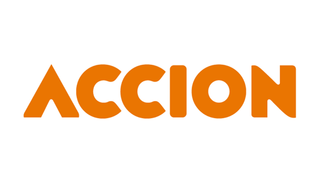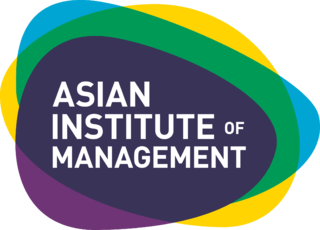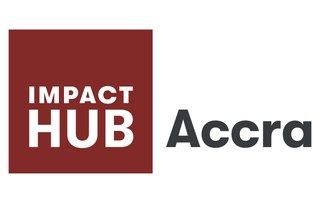A startup or start-up is a company or project undertaken by an entrepreneur to seek, develop, and validate a scalable business model. While entrepreneurship includes all new businesses, including self-employment and businesses that do not intend to go public, startups are new businesses that intend to grow large beyond the solo founder. At the beginning, startups face high uncertainty and have high rates of failure, but a minority of them do go on to be successful and influential.

Venture capital is a form of private equity financing that is provided by venture capital firms or funds to startups, early-stage, and emerging companies that have been deemed to have high growth potential or which have demonstrated high growth. Venture capital firms or funds invest in these early-stage companies in exchange for equity, or an ownership stake. Venture capitalists take on the risk of financing risky start-ups in the hopes that some of the companies they support will become successful. Because startups face high uncertainty, VC investments have high rates of failure. The start-ups are usually based on an innovative technology or business model and they are usually from high technology industries, such as information technology (IT), clean technology or biotechnology.

Accion is an international nonprofit. Founded as a community development initiative serving the poor in Venezuela, Accion is known as a pioneer in the fields of microfinance and fintech impact investing.
Business incubator is an organization that helps startup companies and individual entrepreneurs to develop their businesses by providing a fullscale range of services starting with management training and office space and ending with venture capital financing. The National Business Incubation Association (NBIA) defines business incubators as a catalyst tool for either regional or national economic development. NBIA categorizes its members' incubators by the following five incubator types: academic institutions; non-profit development corporations; for-profit property development ventures; venture capital firms, and a combination of the above.

The Asian Institute of Management (AIM) is an international management school and research institution. It is one of the few business schools in Asia to be internationally accredited with the Association to Advance Collegiate Schools of Business (AACSB). It was established in partnership with Harvard Business School and uses the Harvard Business School case study teaching methodology. Prof Stephen Fuller of the Harvard Business School was its first president, to be succeeded by another professor from Harvard. It was described by Asiaweek magazine as the best in the Asia-Pacific region in terms of executive education.
Social venture capital is a form of investment funding that is usually funded by a group of social venture capitalists or an impact investor to provide seed-funding investment, usually in a for-profit social enterprise, in return to achieve an outsized gain in financial return while delivering social impact to the world. There are various organizations, such as Venture Philanthropy (VP) companies and nonprofit organizations, that deploy a simple venture capital strategy model to fund nonprofit events, social enterprises, or activities that deliver a high social impact or a strong social causes for their existence. There are also regionally focused organizations that target a specific region of the world, to help build and support the local community in a social cause.
An angel investor is an individual who provides capital for a business or businesses, including startups, usually in exchange for convertible debt or ownership equity. Angel investors usually give support to start-ups at the earliest stage, once or in a consecutive manner, and when most investors are not prepared to back them. In a survey of 150 founders conducted by Wilbur Labs, about 70% of entrepreneurs will face potential business failure, and nearly 66% will face this potential failure within 25 months of launching their company. A small but increasing number of angel investors invest online through equity crowdfunding or organize themselves into angel groups or angel networks to share investment capital, as well as to provide advice to their portfolio companies. The number of angel investors has greatly increased since the mid-20th century.
Corporate venture capital (CVC) is the investment of corporate funds directly in external startup companies. CVC is defined by the Business Dictionary as the "practice where a large firm takes an equity stake in a small but innovative or specialist firm, to which it may also provide management and marketing expertise; the objective is to gain a specific competitive advantage." Examples of CVCs include GV and Intel Capital.

The Meltwater Entrepreneurial School of Technology (MEST) is an Africa-wide technology entrepreneur training program, seed fund, and incubator headquartered in Accra, Ghana. The three-phased institution was founded in 2008 to provide training, investment, and mentoring for aspiring technology entrepreneurs with the goal of creating globally successful companies that create wealth and jobs locally in Africa.
iHub is an Innovation hub and hacker space for the technology community in Nairobi. It was started in March 2010 by Erik Hersman, a blogger, TED fellow, and entrepreneur and acquired by Co-creation Hub (CcHUB) in 2019. This coworking space, in Senteu Plaza at the junction of Lenana and Galana Roads, is a nexus for technologists, investors, young entrepreneurs, designers, researchers and programmers.

A startup ecosystem is formed by people, startups in their various stages and various types of organizations in a location, interacting as a system to create and scale new startup companies. These organizations can be further divided into categories such as universities, funding organizations, support organizations, research organizations, service provider organizations and large corporations. Local Governments and Government organizations such as Commerce / Industry / Economic Development departments also play an important role in startup ecosystem. Different organizations typically focus on specific parts of the ecosystem function and startups at their specific development stage(s).

AfriLabs is a pan-African network organisation of over 300 Innovation centers across 50 African countries. Each hub serves as a meeting point for entrepreneurs, technologists, investors, tech companies and web/mobile engineers in its community. AfriLabs provides a network for technology and innovation centers across Africa to network, collaborate and share knowledge.

The Global Innovation through Science and Technology initiative (GIST) is a U.S. government program on innovation and entrepreneurship. The program assists businesspeople in establishing startups. GIST participants in 135 emerging economies can develop skills, build networks, find mentors, and access financing through a combination of in-country training, a pitch competition, interactive online programming, and direct connections to U.S. experts. GIST helps create conditions for successful local entrepreneurship ecosystems and enables global youth to develop local solutions to local problems. GIST is also one of the key programs under President Obama's SPARK Initiative, an initiative under which programs are selected to represent the best work being done by the U.S. Government to advance entrepreneurship around the world.
Onevest, a New York–based investment crowdfunding site for startups that was acquired by Business Rockstars in April 2018, allowed entrepreneurs to raise capital from accredited investors. In July 2014, startups launching on Onevest had collectively raised over $66 million.

Kerala Startup Mission is the central agency of the Government of Kerala for entrepreneurship development and incubation activities in Kerala, India. KSUM was primarily founded to undertake the planning, establishment, and management of the technology business incubator (TBI), a startup accelerator in Kerala, to promote technology-based entrepreneurship activities, and to create the infrastructure and environment required to support high-technology-based businesses.
Startup India is an initiative of the Government of India. The campaign was first announced by Indian Prime Minister, Narendra Modi during his speech on 15 August 2015.

Impact Hub Accra is a co-working space located in Accra, Ghana. The hub recently joined the Impact Hub through the Africa Seed Program. Impact Hub Accra main mission is to support inclusive growth in Ghana through the creation of a social innovation ecosystem by developing programs, providing workspace, access to capital and connecting entrepreneurs focused on solutions to regional challenges. Impact Hub Accra is seeking to build a globally integrated entrepreneurial community that promotes high impact developments in West Africa.

Fadi Ghandour is a Jordanian-Lebanese entrepreneur, investor, and philanthropist. He is the Executive Chairman of Wamda, a platform that builds and invests in entrepreneurship ecosystems across the Middle East and North Africa, Turkey and East Africa through Ecosystem Development programs and a venture capital fund investing in technology-enabled companies that operate in these markets.

The Ghana Climate Innovation Centre (GCIC) is a World Bank InfoDev Climate development program center that provides support to small and medium enterprises and startups in developing business concepts that are profitable and can help solve climate change mitigation and adaptation in Ghana.










